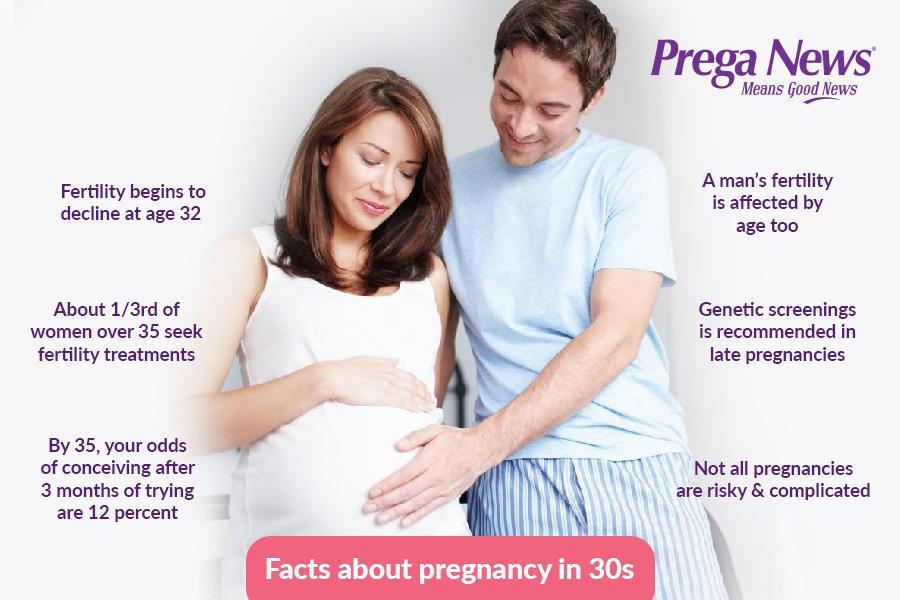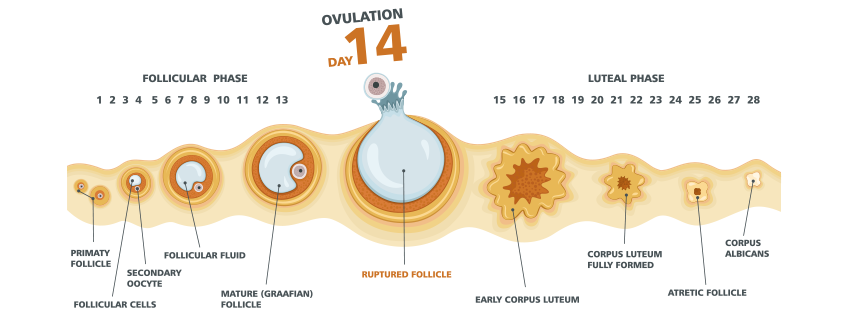Pregnancy in 30s is quite common these days. The newest Centers for Disease Control information suggests that the birth rate for women in the 30 to 34 age group has increased over the last couple of years. This increase suggests that women in their 30s are giving birth at a higher rate than women in their 20s.
A close friend of mine planned her first baby when she was 33 and had a perfectly healthy and smooth pregnancy. Infact, I still remember the moment when she had called me after seeing those two pink lines on her Mankind’s PregaNews Pregnancy Test kit to share the good news and I couldn’t be less excited for her. I vividly remember how our conversation in those days always revolved around the risks and complications of being pregnant in 30s and the kind of precautions she was asked to take to ensure safe and healthy pregnancy.
Well, for many women, 30s is the happy medium for motherhood. Every woman has a right to make this decision for herself. While it is believed that women are most fertile in their 20s, the success rate of pregnancies in 30s is equally good. With every passing decade, women have started focusing on their career, are becoming more independent, are believing more in being an equal couple and are self sustained. Women take their time to ensure that they are settled and are in the right frame of mind mentally and emotionally to embrace motherhood. By the time couples enter their thirties, they are better placed in terms of compatibility, finance and security. Couples are more mature to handle new responsibilities at this stage of their life.
For a first time mother, conceiving in 30s may take a little longer, depending on multiple factors like biological clock, partner’s age, overall health of the couple, diet, lifestyle and genetics to count the least.Ovulation tends to become low with increasing age due to fluctuating hormones and may hence take multiple cycles to conceive. However, fertility differs from woman to woman and a lot depends on health and fitness of her body and mind.
Being healthy before pregnancy and meeting healthcare expert at planning and preconception stage helps couples reduce risks and complications related to pregnancy and delivery.
Pregnancy in early 30s
If you are pregnant in your early 30’s, here is a checklist that will help you with a safe pregnancy and a healthy baby:
● Maintain a healthy diet. Eat healthy and wholesome diet that includes plenty of fresh fruits and vegetables. A folic rich diet is recommended for women in pregnancy.
● Keep a check on your lifestyle and avoid stress
● Say No to alcohol and smoking
● Visit your health care provider for regular check-ups. This helps in diagnosing abrupt pregnancy related issues like gestational diabetes, thyroid issues and complications related to high blood pressure. These checkups also help in diagnosing issues related to baby’s growth and development at an earlier stage.
● Continue with the medicines, if you were taking any prior to conceiving. Do inform your doctor about these medications since he or she might want to replace these medicines or adjust dose.
● Always consult your doctor before starting any new medication.
● It is a good practice to discuss your concerns and dos and don’ts with your doctor during your prenatal visits.
● Never ignore any health concerns or variations during pregnancy. Be sure to give immediate attention to any discomfort you may face.
● In 30s, a body is not as strong as in the 20s. Never say no to help.

35 Plus and Pregnant
Every pregnancy is different. Every woman undergoes different kind of changes both mentally and physically. For women older than 35 and pregnant, risks of developing complications are higher as compared to women pregnant in early thirties, especially if it’s their first pregnancy..
● Chances of miscarriage are higher in women who are 35 plus as compared to women in their 20s or early 30s.
● Women with health issues like diabetes or high blood pressure or certain chronic conditions are at greater risk of facing pregnancy related complications. However, this again differs from woman to woman and hence needs attention for care than worry.
● Women older than 35 are at an increased risk of having a premature delivery. However, a proper healthy diet, regular check-ups and timely consultation with your doctor can reduce this risk.
● Researchers suggest that potential pre-existing conditions or age-related surgical recovery complications in women over 35 are possible reasons for putting these women at greater risk for a C-section
● Due to fluctuating hormones in late thirties, chances of conceiving twins is higher in women in this age range as compared to women in 20s and early 30s.
● You can expect extra scans and tests based on your doctor’s recommendation, since women are more prone to have abnormalities in baby’s growth and development, if pregnant in late 30s.
Whether you conceive before 30’s, in early 30s or late 30s, whether it’s first pregnancy or second, it is important to know that every pregnancy is different because every body functions differently. What matters is the mental, emotional and physical readiness to embrace this turning point of life.
#PreganewsMeansGoodNews
To get more information on preganews usage & pregnancy related issues, log on to www.preganews.com which is India’s No.1 brand in the category. (As per IMS-Health June’19)”
Content powered by BabyChakra, India’s largest parenting app. Read more – https://www.babychakra.com
References –
1.https://www.verywellfamily.com/pregnancy-in-your-thirties-4147320








































